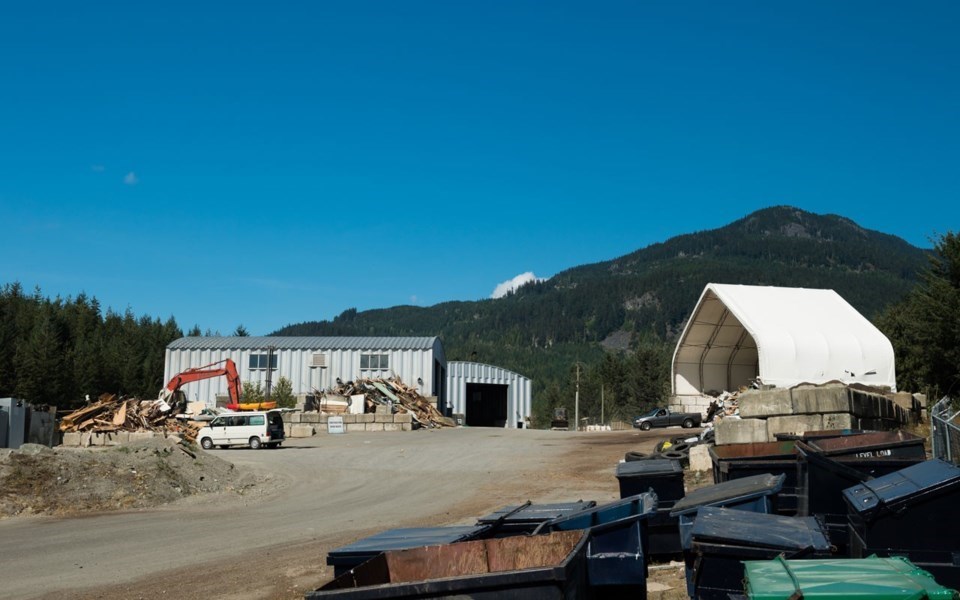The single bidder to manage Whistler’s solid waste facilities has snapped up a five-year contract with the Resort Municipality of Whistler (RMOW).
Whistler’s mayor and council signed off on awarding the $1.5-million contract to the current operator, Green For Life Environmental (GFL), at the May 14 council meeting in a 6-1 vote.
According to the RMOW’s manager of transportation and waste management, Andrew Tucker, the request for proposal (RFP) for the contract was active for 34 days earlier in 2024, and got some interest, but only the single bid was received when the RFP closed.
On that point, Councillor Jeff Murl later asked what the RMOW could do to encourage more bids, but was told that it is a running issue in Whistler, and happened when the previous contract was awarded 10 years prior.
General manager of infrastructure services, James Hallisey, added waste collection contracts in Whistler are broken up into multiple contracts to encourage smaller operators to take bites out of the overall system, but despite that, GFL holds all municipal waste contracts due to a lack of competition.
“It’s a tough market to break into, apparently,” he said.
Murl later commented more needs to be done to create a competitive environment, but conceded waste disposal in North America is not a competitive sector. He ultimately supported awarding the contract.
The specific contract awarded was for the operation of the transfer station and two depots within the RMOW, along with associated works including waste separation, delivery to landfill and man hours.
Staff estimated the new deal represents significant increases over the previous contract, including a $200,000 increase to maintain service levels and budgeting for a new all-year yard coordinator (another $200,400), among other things blowing out the contract for a 27-per-cent increase in cost.
The yard coordinator line-item in the budget comes to $16,700 per month, for a role that would be focused on regular tasks at the station; educate users on waste separation; and generally be “eyeballs on the loads that are coming in” to ensure safety and maximize waste diversion.
The $16,700 would not be for a single position, but multiple roles, according to Tucker, who, when questioned by Coun. Cathy Jewett, said it was a 9-to-5, 364-day-per-year role that would be split between multiple people.
Jewett indicated she wasn’t happy with the number, saying it “seems like a lot of money” before eventually voting against the entire contract.
“If it's eight hours a day, 364 days a year, this attendant or yard coordinator would be getting paid $69 an hour. I know there’s a certain amount of burden to the employer to administer a position, to give benefits and uniforms and things like that, but this just seems really high,” she said.
She was the only opposing vote.
Also during questions, Coun. Arthur De Jong cast back to the report to council on the RMOW’s zero-waste goals, noting the diversion rate being lower than required, and the timeline of the new GFL contract being for five years, which would take the RMOW to 2029—one year short of the municipality's self-imposed waste-reduction goals.
De Jong queried what the RMOW could do to ensure it was reaching those goals in partnership with GFL, to which he was told by Tucker the RMOW is looking to expand the transfer station to improve diversion rates of waste after it is collected and delivered there—effectively adding another layer of sorting.
“We could impact our diversion rate through that,” he said, but added the RMOW ultimately needs to work on behavioural change in the community to reduce the amount of waste received in the first place.
It's the same approach touted by municipal staff in the recent report on zero waste, which noted the amount of waste being generated in Whistler is going up due to an increasing population, even while per-capita waste generation is going down.




